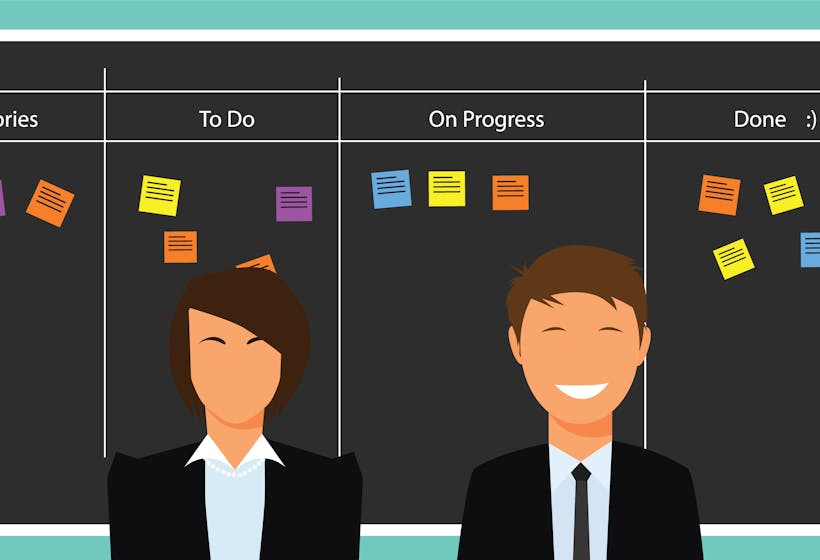
Not many managers relish the thought of performance management conversation, and neither do their employees. Yet, there is a way to change that attitude.
Most performance management conversations begin and end the same way — stuffy formalities, form-filling, and an awkward handshake. All the hallmarks of the far-too-common “if I have to…” attitude many managers and employees have towards performance management conversations. However, this isn’t how it should be, and it’s certainly not how it needs to be.
Annual appraisals are not effective performance management conversations
The most common performance management conversations that managers are asked to have with their employees is the annual appraisal, despite the fact that they don’t work. The data shows that neither managers nor employees like them or think they have much value. In a survey of 3,000 workers in San Francisco, 98% said they believed annual appraisals were unnecessary.
It’s not hard to see why people feel this way. The once-a-year attitude towards performance conversations puts too much pressure on a single meeting. What’s more, the existing of the once a year appraisal discourages managers from discussing performance during the year as events occur. Consequently, employees and managers end up dreading the annual appraisal conversations as they have little or no idea of how they have been performing, and things that happened months ago may be brought up as feedback for the first time.
It’s one thing to have a process in your business which people dislike. It’s another thing to have a process in your business which people dislike and doesn’t work. That’s about as bad as a thing can get in business.
Rating systems rarely lead to effective performance conversations
Another major turn-off for managers and employees is the rating system. When ratings are included as part of a performance conversation, they kill the honesty and any potential for performance improvement and learning is lost. Would you discuss your fears, mistakes and areas for development if you know that a rating is coming at the end of the conversation? Unlikely. Instead, most of us will talk up our achievements to try and get the best possible rating.
Just as with annual appraisals, rating systems don’t work because they suppress frank and constructive discussion which is the cornerstone of performance improvement. Ratings can have a place in performance management if there is strong enough reason to justify their use, but they should always be decoupled from performance and development conversations.
The 5 most important performance conversations
Take a look at our collection of free resources where you can learn everything you need to know about having good performance conversations.
If you’re making the switch to regular performance management conversations, don’t do it by halves. A mistake made by many businesses when introducing regular performance management conversations is that they trial them alongside annual appraisals. In theory, this is a good idea. After all, A/B testing is common in marketing and many other sectors of business. You test two things at the same time and — all other things being equal — you see which works better.
The issue is that your managers’ time is precious and limited. If you are asking them to have regular performance conversations and carry out annual appraisals as well, it’s simply too much of an ask and you are unlikely to get a decent level of adoption. So be brave and lose the appraisal. As one HR Director said to me recently, if your managers have already discussed events during regular performance conversations, what’s the point in discussing them again at an end of year appraisal?
If you need to take an end of year performance assessment for pay or promotion purposes, you don’t need to carry out full appraisal for that, there is an easier way. Read our eBook for advice on how to manage performance related pay without annual appraisals.
Clear Review’s performance management software makes the transition simpler
There are ways to phase in regular performance conversations in place of annual appraisals so that the transition can be made smoothly and without the creation of extra work. Clear Review’s performance management software helps by easing the workload so that a manager can prepare and hold a performance management conversation in just 20 minutes. The Clear Review application automatically provides recommended prompts for discussion and the employee’s goals, updates and feedback are all readily available to discuss during the conversation. No more hunting around for notes made in notebooks or spreadsheets containing employees’ objectives.
It’s all about selling the trade-off. If you tell managers that you are removing appraisals that they dislike and replacing them with a more natural process of having regular conversations, supported by an online system that makes scheduling the conversations, capturing notes and giving feedback easy, most managers will embrace such a change.
Once your managers are onboard, your employees will be too. After all, you’ll have turned their dreaded yearly appraisals into constructive, regular, feedback sessions that focus on practical solutions rather than assessments.
If you’re looking to introduce regular performance management conversations to your business, contact Clear Review today for a FREE demo of our purpose-built continuous performance management software.
See What Makes Our Performance Management Software Different